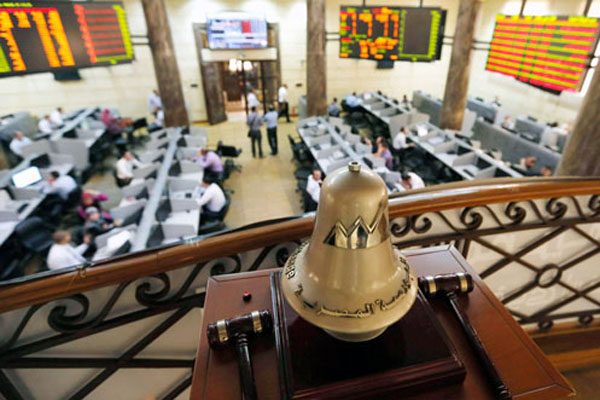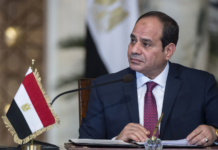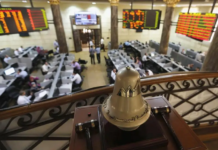Between 30 June 2014 and 30 June 2015 there were many changes, improvements and challenges in the Egyptian stock market, Angy Essam looks at the main highlights of this critical period
Most Egyptian stock market analysts say the stock market was the frontrunner in the nation’s economic sector over the past year. Ahmed Mourad, chief financial analyst at a major securities company, said the period from 30 June 2014 to 30 June 2015 saw the highest number of new companies registering since 2010.
“The highest trading percentage in the Egyptian stock market history; the best markets worldwide in terms of development; a major leap in foreign investors—almost equal to the number of foreign investors the Egyptian stock market lost after the 25 January Revolution—and with net purchases that reached LE3.4bn and market capital that jumped to its highest level for five years; all these achievements put the Egyptian stock market at the top in this period,” Mourad said.
Mourad said the Egyptian stock market had achieved the best performance compared with other Arab stock markets, last year achieving a 32 per cent rise in its main index EGX30 and creating a large gap between its competitor stock markets, taking into consideration the downturn in all the Arab stock markets after the fall in petrol prices.
“The Egyptian stock market was the best in the Middle East in 2014,” Mourad emphasised. He explained that trade was the highest in its history, reaching LE57bn in securities—almost double the Egyptian stock market achievement in 2013. The value of traded stocks exceeded LE189bn, the highest since 2010, according to the Egyptian stock market’s annual report.
“The corrective operations that took place after the 30 June Revolution greatly lifted the Egyptian stock market performance,” Mourad said. The corrective operations after the revolution began in July 2014 and included cancelling the precautionary procedures taken immediately after the revolution; returning to exploratory sessions; increasing trading hours to 4.5 hours; and unifying price limits to 10 per cent in the main market and 5 per cent on the Nile Bourse.
“In August, the criteria for choosing stocks that permit the practice of specialised activities were amended. In September there were a lot of events, like condensed promotional visits with the largest global financial organisations, and signing an agreement with Nasdak Omex to provide technical support to the trading system in the Egyptian stock market. The Prime Minister appointed two experienced independent members of the Egyptian Bourse, and the Egyptian stock market issued amendments related to treasury stocks and compulsory delisting in addition to issuing its first report following up the execution of its work strategy,” he added.
Mourad said that as a result of these corrective decisions the Bourse main index EGX30 reached its highest levels for six years. “On 29 September 2014, the Egyptian stock market won the most developed and creative African bourse prize,” he said, adding that the registration documents were later decreased by half. The Egyptian stock market board approved the rules related to the arbitration of money market disputes.
“On 17 November, the capital market exceeded half a trillion to reach LE540bn; its highest level for five years, and a cooperative agreement was signed with the American University in Cairo to enhance the abilities of small and medium companies,” Mourad said.
The head of the Egyptian stock market was appointed chairman of the Euro Asian stock markets union, and was then elected a member of the executive committee of the African union. In December, the Egyptian Bourse hosted an employment fair for financial analysts and CFA certificate holders.
“At the beginning of this year the Egyptian stock market began trading the first boxes with ETFs indexes on the EGX30 index,” said Galal Akram, head of the research department at a brokerage company. According to Akram, the Egyptian stock market is continuing in 2015 the development plan that began after the 30 June Revolution to increase its achievements. In February the Egyptian Bourse amended the executive procedures related to registration rules. The Egyptian Bourse was chosen by the sustainability committee of the United Nations as the model of effective communication with the market side. Akram added that the Egyptian stock market and the Ministry of Petroleum had agreed to cooperate to use the Egyptian Bourse to enhance corporate structures which will lift the performance of both the Bourse and the ministry.
“In March the Bourse launched the second phase of developing the OTC, as well as organising a training and technical support programme for the representatives of 13 other bourses to study the Egyptian stock market experience,” Akram said. In April the Egyptian stock market launched effective communication models with the different market sides within the United Nations initiative to sustain the bourses (UN-SSE). “This year witnessed the first launch of the electronic disclosure system to improve the performance of the Egyptian Bourse,” Akram said. He explained that one of the main obstacles facing the Egyptian stock market was the capital gains tax that the government imposed on Bourse profits, which amounted to an annual 10 per cent. However, last month the cabinet announced that it would waive taxes for two years because the tax caused great losses to Bourse investors, estimated at between LE40 and LE60bn.
“This decision achieved a balance between the interests of the government and individual investors, because after these two years the economy will have recovered totally. The Bourse performance will improve significantly, increasing the size of daily trading in the Egyptian stock market from LE250mn—which is the current number after imposition of the capital gains tax—to LE2bn, at which time it will be convenient to restore capital gains tax,” Akram said. He pointed out that permitting foreign investors to transfer half of their US dollar profit would help greatly in attracting foreign investors to the Egyptian stock market, something which is now much needed.















